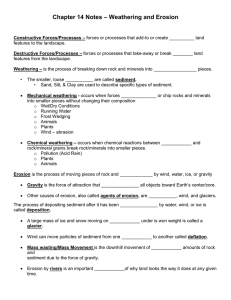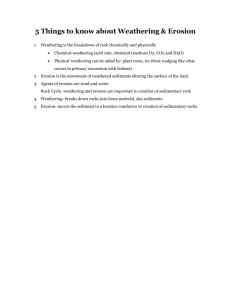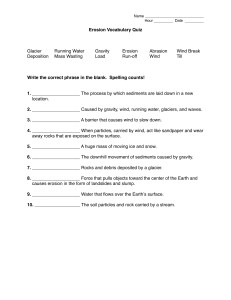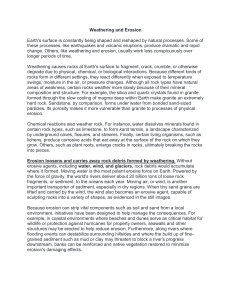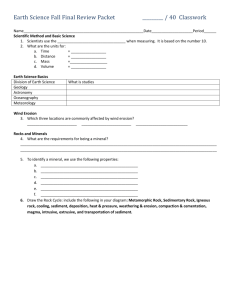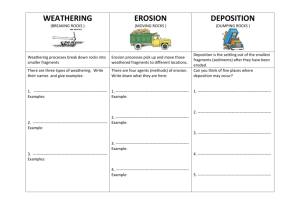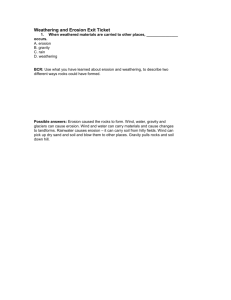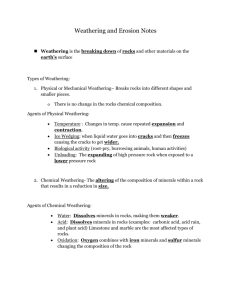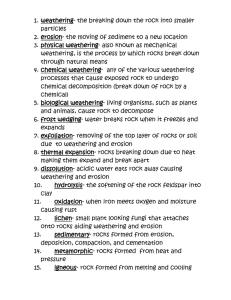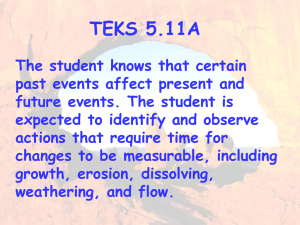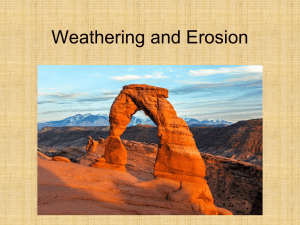Vocabulary for S6E5f On the next blank page of your spiral notebook
advertisement
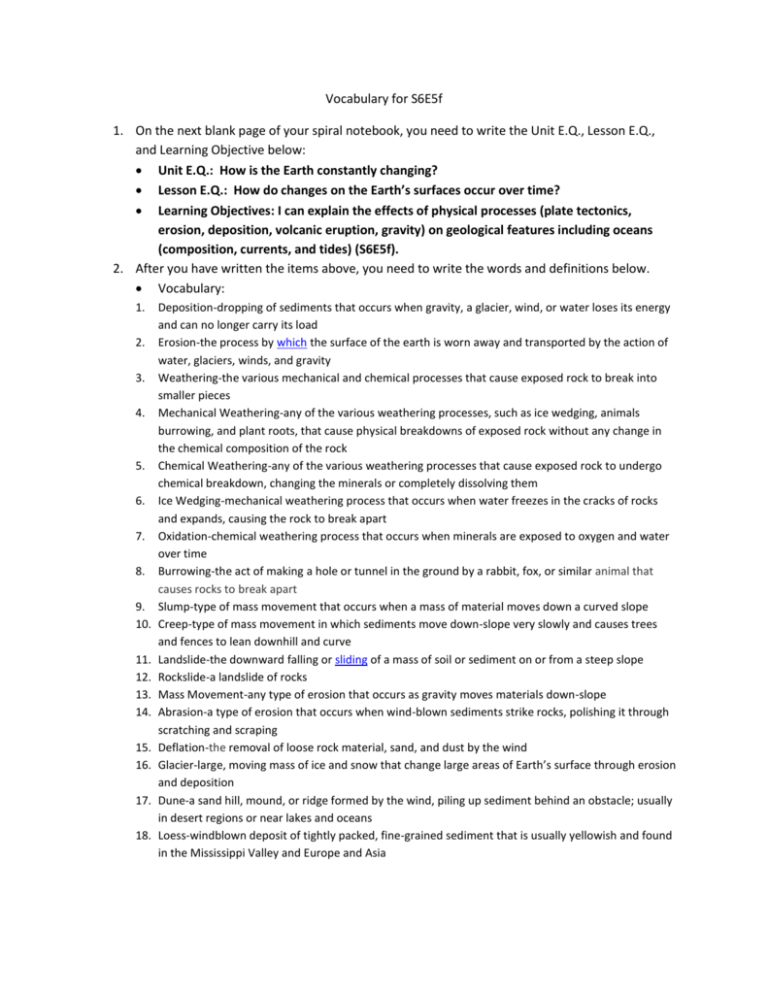
Vocabulary for S6E5f 1. On the next blank page of your spiral notebook, you need to write the Unit E.Q., Lesson E.Q., and Learning Objective below: Unit E.Q.: How is the Earth constantly changing? Lesson E.Q.: How do changes on the Earth’s surfaces occur over time? Learning Objectives: I can explain the effects of physical processes (plate tectonics, erosion, deposition, volcanic eruption, gravity) on geological features including oceans (composition, currents, and tides) (S6E5f). 2. After you have written the items above, you need to write the words and definitions below. Vocabulary: 1. 2. 3. 4. 5. 6. 7. 8. 9. 10. 11. 12. 13. 14. 15. 16. 17. 18. Deposition-dropping of sediments that occurs when gravity, a glacier, wind, or water loses its energy and can no longer carry its load Erosion-the process by which the surface of the earth is worn away and transported by the action of water, glaciers, winds, and gravity Weathering-the various mechanical and chemical processes that cause exposed rock to break into smaller pieces Mechanical Weathering-any of the various weathering processes, such as ice wedging, animals burrowing, and plant roots, that cause physical breakdowns of exposed rock without any change in the chemical composition of the rock Chemical Weathering-any of the various weathering processes that cause exposed rock to undergo chemical breakdown, changing the minerals or completely dissolving them Ice Wedging-mechanical weathering process that occurs when water freezes in the cracks of rocks and expands, causing the rock to break apart Oxidation-chemical weathering process that occurs when minerals are exposed to oxygen and water over time Burrowing-the act of making a hole or tunnel in the ground by a rabbit, fox, or similar animal that causes rocks to break apart Slump-type of mass movement that occurs when a mass of material moves down a curved slope Creep-type of mass movement in which sediments move down-slope very slowly and causes trees and fences to lean downhill and curve Landslide-the downward falling or sliding of a mass of soil or sediment on or from a steep slope Rockslide-a landslide of rocks Mass Movement-any type of erosion that occurs as gravity moves materials down-slope Abrasion-a type of erosion that occurs when wind-blown sediments strike rocks, polishing it through scratching and scraping Deflation-the removal of loose rock material, sand, and dust by the wind Glacier-large, moving mass of ice and snow that change large areas of Earth’s surface through erosion and deposition Dune-a sand hill, mound, or ridge formed by the wind, piling up sediment behind an obstacle; usually in desert regions or near lakes and oceans Loess-windblown deposit of tightly packed, fine-grained sediment that is usually yellowish and found in the Mississippi Valley and Europe and Asia
